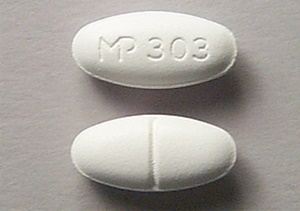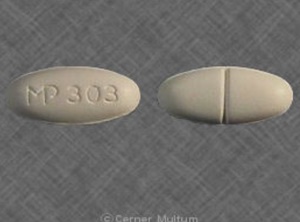
Spironolactone For Female Hair Loss
 Spironolactone Tablets
Spironolactone TabletsSpironolactone was originally designed as an oral supplement. It is sold under the brand name Aldactone or similar.
It's a medication that was originally FDA approved for use for treating fluid build-up due to heart failure, liver scarring, or kidney disease.
My Own Personal Experience With Spironolactone
I am well-acquainted with Spironolactone because it was prescribed to me by my endocrinologist for my Chronic Telogen Effluvium (CTE).
That might not sound unusual for 2022, but I received my first prescription in the late 1990s when it was still relatively unheard of. It certainly was not used for women's hair loss back then.
Spironolactone Is Mainstream For Women's Hair Loss In 2022
 Spironolactone10
Spironolactone10Recently spironolactone became available also as a topical solution for skin conditions and hair loss issues in women.
The topical version can also be used with oral spironolactone to reduce the amount of oral spironolactone needed.
For More Information, See: https://pubmed.ncbi.nlm.nih.gov/34250269/
Since women are often not considered good candidates to take finasteride, they are prescribed spironolactone.
A Great Off-Label Medication For Female Androgenetic Alopecia (AGA)
Like many other medications, spironolactone was eventually discovered as a good off-label treatment for women suffering from genetically triggered androgenetic alopecia (AGA).
Androgenetic alopecia is also known as female pattern hair loss (FPHL). There is no one definitive way to prevent female pattern baldness.
Female pattern hair loss is a genetic condition that impacts hair growth in women. It is not a disease, nor is it a disorder. It never goes away.
 Spironolactone PIlls
Spironolactone PIllsIt's caused by an imbalance between the production of male and female hormones.
It can be passed down in families.
Alternatives To Spironolactone
Research indicates that spironolactone is actually the most commonly used off-label anti-androgen used for female pattern hair loss.
For women who can't take spironolactone, other options include Bicalutamine, which is also an antiandrogen.
Sometimes spironolactone is also combined with low androgen hair birth control pills or similar treatments.
Unfortunately, due to the Covid pandemic and many other current stressors, women's hair loss is at epidemic levels.
Combine Spironolactone With Minoxidil And Other Treatments
 Stressed Out Woman
Stressed Out WomanRecent studies have documented the success of slowing or stopping androgenetic alopecia with a combination of spironolactone (approximately 200 mg) and minoxidil 5% drops applied twice daily.
Even better results have been reported when women combine spironolactone with minoxidil and other no-surgical treatments.
These may include, but not be limited to, platelet-rich plasma (PRP), low-level laser light therapy (LLLLT), and microneedling.
Consult With A Great Hair Loss Physician
Before you take any hair loss medications or pursue any alternative treatments, always work with a highly experienced hair loss expert.
Sometimes the very best physicians that can advise you on women's hair loss are dermatologists. Other times they may be endocrinologists or hair loss surgeons.
Women do not make great hair restoration patients, so when possible, start with a dermatologist who specializes in
Holistic Treatments
 Spironolactone For Female Hair Loss
Spironolactone For Female Hair LossIn some cases, special scalp masks combined with essential oil massage and acupuncture or acupressure.
While some people swear by mesotherapy, it's considered to have limited benefits compared to other types of hair loss treatments for women.
Spironolactone is also used for early puberty in boys, acne, and excessive hair growth in women.
What Is An Antiandrogen Medication
Spironolactone is an antiandrogen medication that blocks testosterone's effects. As a result, it's often prescribed for androgenetic alopecia in women (FPHL).
Antiandrogen medications block testosterone's effects. It is also known as an androgen receptor blocker or androgen receptor antagonist.
For this reason, it is frequently used to treat a variety of conditions in which androgens play a role.
Polycystic Ovary Syndrome (PCOS)
Spironolactone is also commonly used to treat symptoms of hyperandrogenism due to polycystic ovary (PCOS) syndrome in women.
A gynecologist might prescribe the drug for their PCOD challenges. Always do your own research, get multiple opinions and listen to your own gut.
When making decisions about the best course of action, you decide to take remember that knowledge is power.
Side Effects Of Spironolactone
 Spironolactone For Female Hair Loss
Spironolactone For Female Hair LossMost medications do have side effects.
The side effects of spironolactone may include electrolyte abnormalities, particularly high blood potassium, nausea, vomiting, headache, rashes, and decreased libido.
Extra care should be taken for anyone prone to liver or kidney problems.
It is a steroid that blocks the effects of the hormones aldosterone and testosterone. It has some estrogen-like effects. Spironolactone belongs to a class of medications known as potassium-sparing diuretics.
Spironolactone has not been well studied in pregnancy and should not be used to treat high blood pressure pregnancy.
High doses of spironolactone, which are needed for considerable antiandrogenic effects, may not be recommended for men. This is due to the high risk of feminization and other side effects.
Other Uses For Spironolactone
Spironolactone was discovered in 1957 and was introduced in 1959. It is on the World Health Organization's List of Essential Medicines. It's available as a generic medication.
 In 2019, it was the 63rd most commonly prescribed medication in the United States, with more than 11 million prescriptions.
In 2019, it was the 63rd most commonly prescribed medication in the United States, with more than 11 million prescriptions.
It's also used in the treatment of high blood pressure and low blood potassium, which doesn't improve with supplementation.
Also, it's a part of transgender hormone therapy in transfeminine people.
Summary
Less than 5% of all women are hair restoration, surgery candidates.
The good news? There have been major developments in a range of medications, topical solutions and alternative treatments.
Women struggling with androgenetic alopecia (AGA) or other hair loss issues may be able to slow or even stop their hair loss.
In some cases, they may even be able to regrow some lost strands.
In a small study involving just a handful of patients, a 200 mg dose of spironolactone administered daily reduced hair loss by up to 62.9 percent.
It also increased the total number of hairs in the anagen phase of the hair growth cycle.
Any woman who suspects she is suffering from any type of alopecia should get prescriptions for beneficial medications from their hair loss experts.
Remember to always do your due diligence and get as much information as you can before you decide to take any medications for female hair loss.
Best wishes.
For more information:
Spironolactone For Female Hair LossSocial Media Network Information
Please follow us on Twitter at: https://Twitter.com/HairBoutique. I look forward to meeting new people from all walks of Twitter and learning from their Tweets.

















